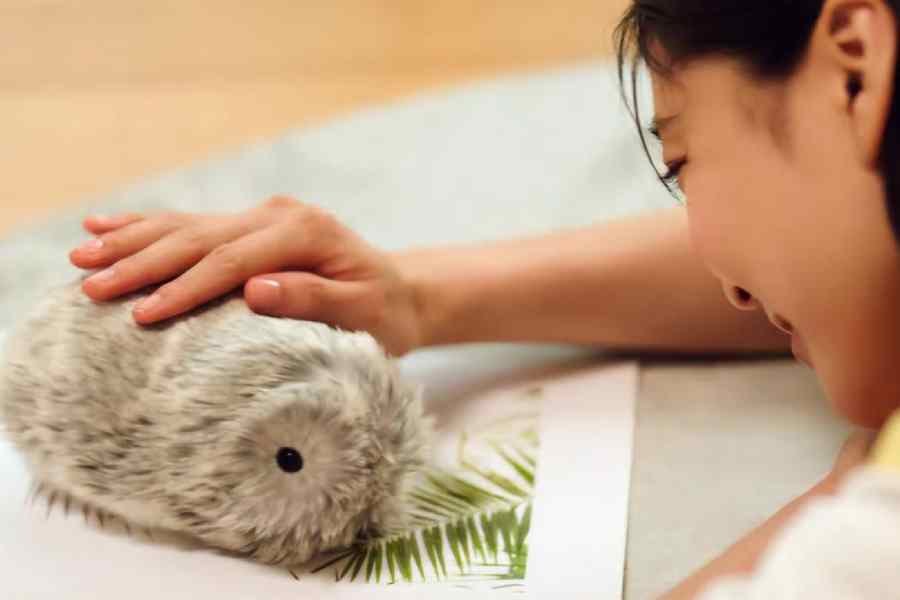Carefree love
Sir — Who has not wanted a fluffy pet as a child and been turned down by parents because feeding and cleaning it would be a tough job? But parents can rest easy and children rejoice as Japan has come up with Artificial Intelligence pets that love to be cuddled and respond to sounds. ‘Moflins’, as they are called, are designed to be cute and come with chargers. They can fulfil people’s desire to have hassle-free pets. While people taking to electronic pets may increase e-waste, already a significant component of household and industrial garbage, there is a brighter side to this. AI pets might just arrest the booming illegal trade in exotic animals like tigers that are kept in inhuman conditions with the manufacturing of their harmless, electronic look-alikes.
Madhav Suri,
Noida
Gender burden
Sir — The report, Education, Social Norms, and the Marriage Penalty: Evidence from South Asia, highlights that only 32% of working-age women participate in the labour force in South Asian countries (“Heavy penalty”, Oct 24). This low labour force participation among women after marriage has resulted in them earning only 58% of men’s salaries. The report attributes this trend to married women leaving the workforce to cater to domestic responsibilities. Women put in as much effort as men in building their careers. Unfortunately, they encounter added challenges like limited advancement opportunities, unequal pay, and workplace discrimination. Additionally, many women are pressured into leaving their jobs during pregnancy or after childbirth. Despite their vital contributions to the economy, many Indian families do not see women as being equal to men.
Companies should offer quality childcare facilities or allow new mothers to work from home for at least two years. Fixed working hours, especially in sectors like technology and in multinational corporations, can also help women balance their professional and domestic responsibilities. Families must support women by sharing household chores.
Kiran Agarwal,
Calcutta
Sir — Addressing misogyny requires a comprehensive approach. Educating women empowers them to challenge harmful traditions and advocate for equality. It can also allow women to be financially independent. This can reduce cases of harmful social practices like child marriage and dowry. It is important to conduct campaigns regarding the consequences of female infanticide. This must be supplemented with governmental aid for victims. Grassroots movements and non-governmental organisations can promote an environment that protects girl children. Providing economic incentives like scholarships for girl children can alleviate financial strains and act as positive enforcement.
Dhananjay Sinha,
Calcutta
Sir — Child marriages in India have not been eradicated despite the best efforts of the government and civil society (“New approach”, Oct 25). Some of the many problems of child marriage are early pregnancy, increased maternal and infant mortality rates and low birth weight in babies. Young married girls also often face violence at the hands of their in-laws and are forced to quit school. This restricts their freedom to pursue a career and improve their lives. A strict enforcement of the existing laws preventing child marriage is the need of the hour. No wonder India has been facing flak globally regarding child marriages.
Vinay Asawa,
Howrah
New spaces
Sir — Chandrima S. Bhattacharya advocates for a change in the existing practice of the presentation of a pushpa-stabak or flower bouquet by women to greet dignitaries, mostly men, before the commencement of an event (“Feminine spaces”, Oct 25). She proposes that such activities can be carried out by men too. Bhattacharya also states that girls or women are missing from para cricket matches. This is erroneous as many women attend these as audience members. But they must take part in the matches instead of remaining mute spectators.
Jahar Saha,
Calcutta
Sir — Rituals play an important role in any puja. For the last few Durga Pujas, The Telegraph has encouraged its readers to replace the traditional chant of ‘putrang dehi’ — asking for sons while offering pushpanjali to the goddess — with the more inclusive ‘santanang dehi’, which is a prayer for children regardless of gender. This is heartening. The fight for gender equality has been waged for decades and still has a long way to go. But it is important to address even these small instances of misogyny.
Devanshi Chaudhuri,
Calcutta
Tricky ties
Sir — The thaw in the ties between India and China by agreeing to restore patrolling and grazing rights for India and disengaging Chinese troops in East Ladakh is widely being viewed as a win for New Delhi. It is, in fact, just the opposite. China seems to have accepted a meagre truce until it launches another formidable attack on India. China has already occupied chunks of Indian territory and built infrastructure there as well. It has hardly anything to lose by ceding ground due to this agreement. If India truly wants a victory over China, the latter will have to withdraw from Indian territories and dismantle its infrastructure from those places.
S. Kamat,
Mysuru
Sir — Whether or not it is temporary, the Chinese hand of friendship is welcome as India is currently facing alienation from its Western allies. Both India and China maintain a military presence along the Line of Actual Control, which has never been clearly defined and has remained a source of friction. While an agreement on disengagement along the border appears to be a significant step, more details about the scope of the arrangement are needed.
C.K. Subramaniam,
Mumbai











